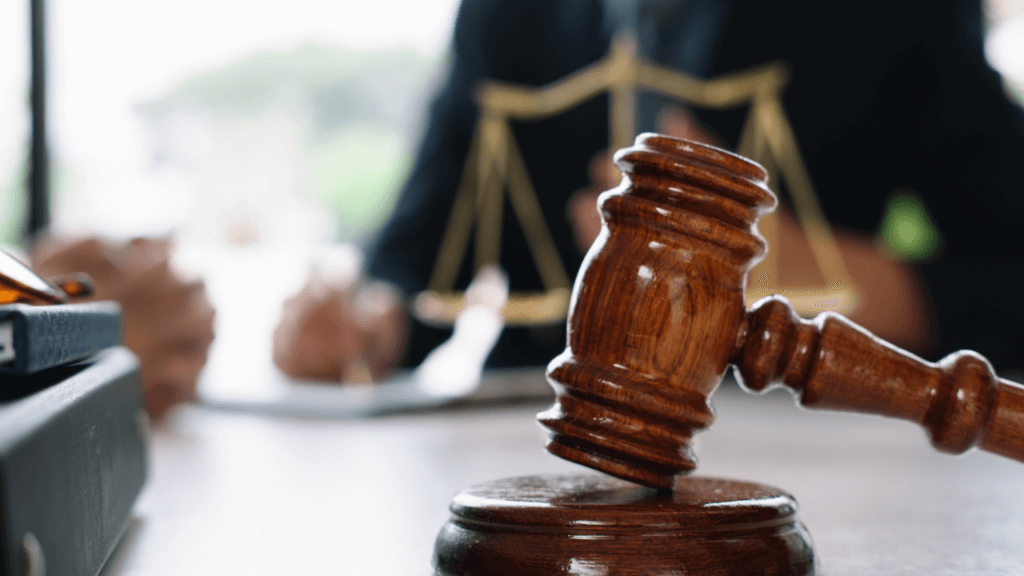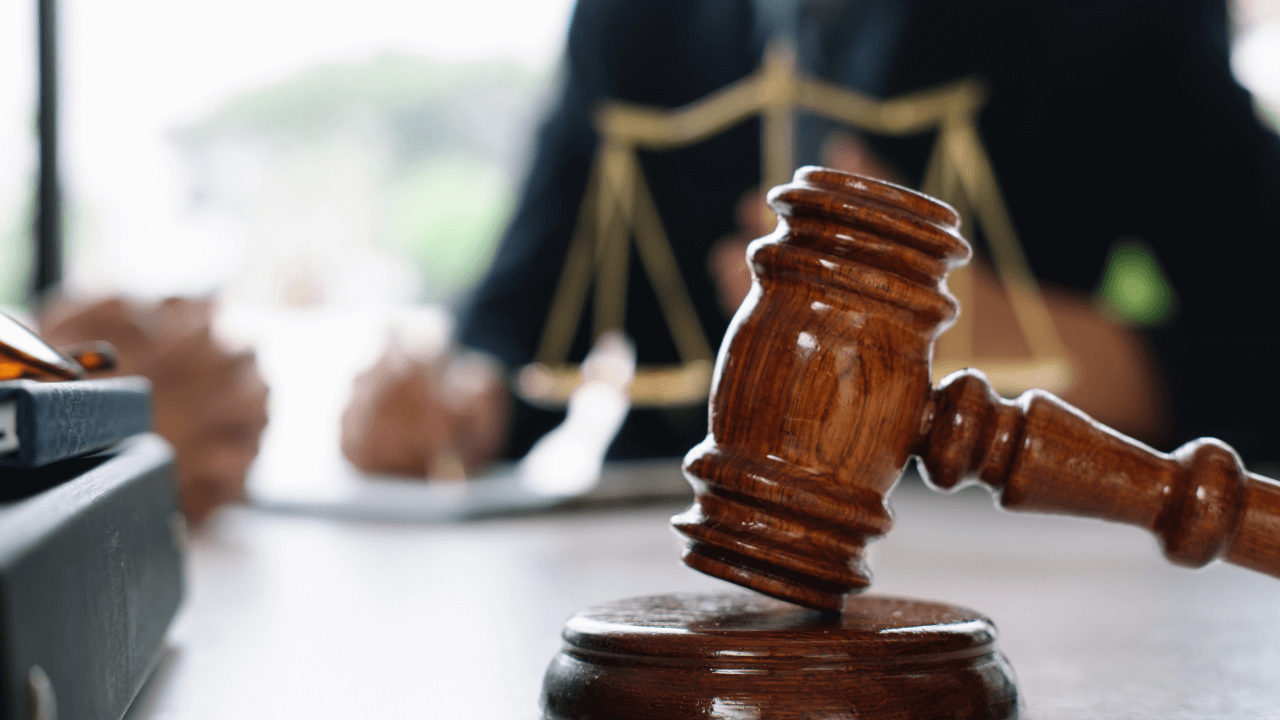
A restraining order, also called an order of protection, is a legally binding order issued by a court to protect an individual from harassment, abuse, stalking, and other threats made by another individual. If you live in New Jersey and have been served a restraining order, it is inevitable that questions will arise about how this order will affect your life.
If you have a restraining order against you, hire an experienced attorney from Rosenblum Law. One of our attorneys will be able to provide you with expert legal advice and strong representation in court. This article covers some of the most frequently asked questions we get about restraining orders in New Jersey.
What does it mean to have a restraining order filed against me in New Jersey?
If you have a restraining order against you in New Jersey, this generally means you are barred from having direct or indirect contact with the individual who filed for the order. If the restraining order is a temporary restraining order, it will stay in effect until the court hearing is scheduled and the judge can talk with both parties. The hearing will usually happen within 10 days of when the temporary restraining order was filed.
If the order is a final restraining order, it will stay in effect permanently, unless the judge gives the person who filed it permission to vacate the order, or the restraining order is appealed by the party who it was issued against.
What should I do if I have been served a restraining order in New Jersey?
If you have been served a temporary restraining order in New Jersey, you should read the order carefully and find the date and time of the hearing for the final restraining order. A temporary restraining order is only meant to last until the final hearing can be scheduled, which is usually within 10 days.
After reading the order, consult with an attorney immediately, as they will have limited time to prepare a defense strategy before the final hearing. An attorney will represent you in court and fight the restraining order if you believe it has been unjustifiably issued. An attorney will also advise you of your rights and help you understand the provisions of the restraining order.
Can I contact the person who filed the restraining order against me?
No. If a restraining order has been filed against you and approved by a court, any direct or indirect communication with the person who filed the restraining order is prohibited. These restrictions include:
- Physical contact
- Contacting them through a third party intermediary
- Phone calls
- Text messages
- Emails
- Social media posts or messaging
An attorney can help you better understand the conditions of your restraining order to ensure you do not violate any of its provisions.
What happens if I violate a restraining order in New Jersey?
If you violate any of the terms of a restraining order issued against you, you could be charged with criminal contempt. Depending on the violation and the nature of the restraining order, you could face up to 18 months in jail and substantial fines. If you violate a restraining order a second time, you will be put in jail for a minimum of 30 days. An attorney can help defend individuals who have been charged with criminal contempt from a violation.
How long does a restraining order last in New Jersey?
If the restraining order is temporary, the order will only stay in effect until the judge is able to talk to both parties during a court hearing. At the hearing, the judge will determine if the temporary restraining order should become a final restraining order. If a final restraining order is granted, it will stay in effect permanently unless the court modifies or lifts it.
What are the consequences of receiving a restraining order?
Besides being barred from contacting the person who issued the order, you may face repercussions such as:
- Being fined between $50 and $500
- If the order is connected to domestic violence, having your name placed in a domestic violence registry
- In many cases, having to surrender firearms and being prohibited from purchasing or possessing any new firearms
- If you were married to the person who filed for the restraining order and have children with that person, potentially having your custody and visitation rights affected.
Can I appeal a restraining order in New Jersey?
Yes. If you are issued a final restraining order and believe the order is unjustified, the court made an error, or new evidence has arisen, you will have 45 days after the judge’s decision to file a notice of appeal. The notice of appeal is reviewed by the Appellate Division and requests a re-evaluation of the decision made by the judge who approved the final restraining order. An appeal requires a deep understanding of the law, so an attorney is highly recommended.
How can I protect my rights while complying with a restraining order?
To protect your rights while complying with the a restraining order, there are several steps you can take:
- Read, understand, and follow the order. You should thoroughly understand what the restraining order says, including the restrictions it places on you. This will ensure you are aware of what specific actions or places are now prohibited. You should follow strict compliance to the terms and conditions of the restraining order.
- Document your actions. If something happens, such as accidentally being in the vicinity of the individual who filed the order, you should document the incident in case you need to contest any allegations in court.
- Hire an attorney. the best way to ensure you understand the terms of the restraining order and protect your rights is to hire an experienced attorney. An attorney understands the laws behind restraining orders and can provide legal guidance.
Am I allowed to go to places where the person protected by the restraining order might be?
No. A restraining order will outline the places where you are prohibited from going because the person who issued the restraining order might be there. These often include their home, workplace, and school. Other locations may also be specified in the order, such as a fitness club. Violating these terms can have significant legal consequences, including jail time and fines.
If you and the other party live in the same region, there is always the chance that you could accidentally see them in public. If this happens, you should leave the premises immediately to avoid them taking legal action against you. Do not try to approach them and explain why you are there, as this could be considered a violation of the restraining order.
Will a restraining order appear on my record in New Jersey?
A restraining order is considered a civil violation and is generally not included on a standard criminal record. However, if the restraining order was filed due to domestic violence, the restraining order will be registered in the Domestic Violence Central Registry.
Can a restraining order affect child custody or visitation rights?
Yes, when two parties are involved in a restraining order case and have a child or children together, child custody or visitation rights may be affected. The parent issuing the restraining order can request the order to include terms for child custody and visitation rights. The court will prioritize the safety of the children when making a decision.
Here are some potential ways in which custody and visitation may be impacted by a restraining order:
- A temporary custody order may be issued when a temporary restraining order is issued, which could lead one parent to lose custody until the court hearing for the final restraining order.
- If a final restraining order is issued, the child custody and visitation terms in the temporary restraining order may become permanent.
- The court may require supervised visitation for the parent who the order was issued against.
- If the restraining order was issued due to violent circumstances, such as domestic violence, the parent who filed the order may receive sole custody.
Can I own or possess firearms if there is a restraining order against me in New Jersey?
No. If you are issued a restraining order, you will most likely have to surrender all your firearms. You will also be prohibited from owning or possessing new firearms. This also means you will not be eligible to apply for a gun license or a concealed-carry permit in New Jersey.
What happens if the person who filed the restraining order contacts me?
If the person who issued the restraining order contacts you, it is vital that you handle the situation properly to avoid legal consequences.
- Do not respond. Even if the other party initiated the contact, you can face legal consequences for responding. Under no circumstances should you contact the other party; this includes direct and indirect communication.
- Document the contact. Keep a record of the incident as evidence for your innocence.
- Notify your attorney. An attorney will be able to advise you on the best course of action. For example, you could contact law enforcement about the violation, or you could seek to appeal the order.
Where can I get legal help regarding a restraining order in New Jersey?
Restraining order cases can be fairly complex. If you have been served a restraining order in New Jersey, you can find support from the experienced, capable attorneys at Rosenblum Law. A restraining order attorney from Rosenblum Law will have an extensive understanding of the law, and will be able to defend you in court, provide expert legal guidance, and help you understand your rights and restrictions as a result of the restraining order.
The time frame between a temporary restraining order and the court hearing for a final restraining order is only 10 days. Do not wait to reach out. Contact us today for a free consultation.






 888-815-3649
888-815-3649
